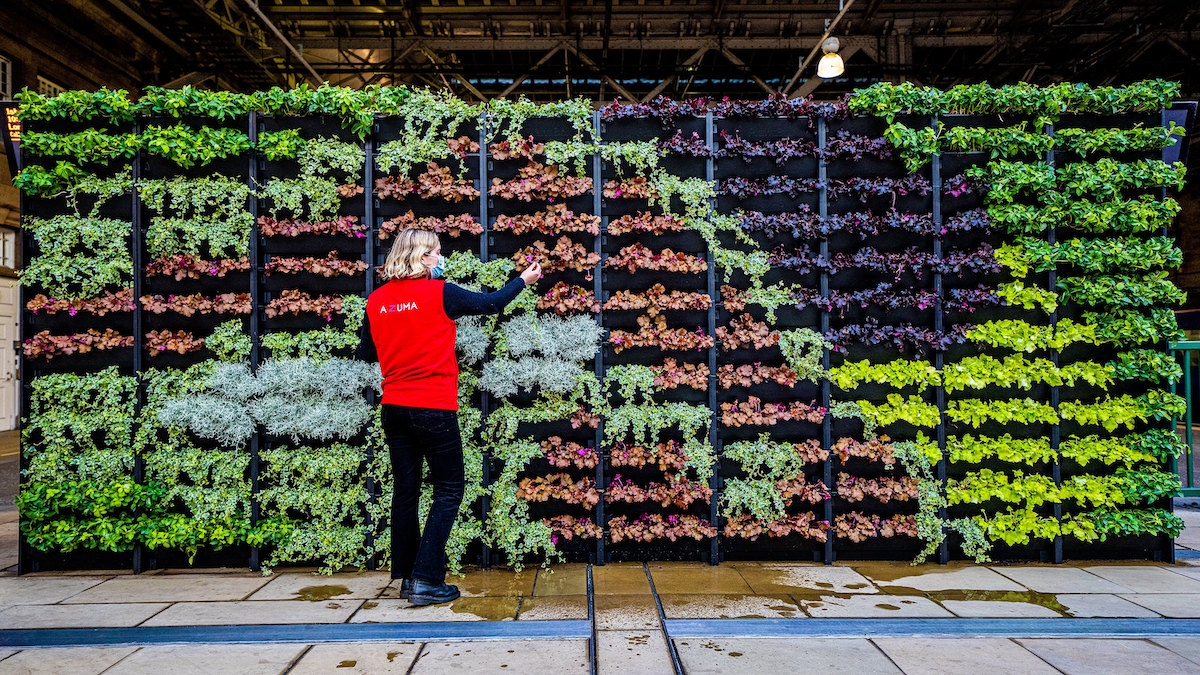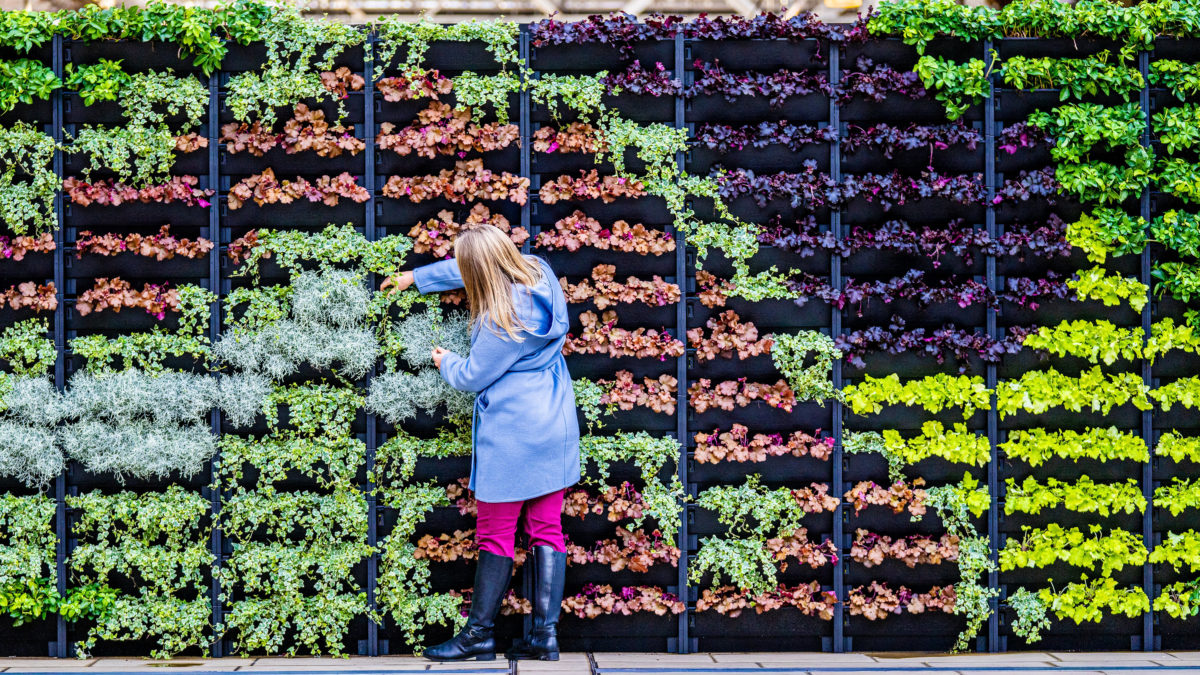COP26 – Living Wall installed at Waverley to promote sustainable transport
Rail operator, London North Eastern Railway, (LNER), has unveiled its Azuma Living Wall Installation for COP26 supporting and promoting sustainable transport.
The wall is on display throughout COP26 which is taking place in Glasgow. LNER say that if only half of domestic leisure journeys were switched to rail each year around 331 kg of carbon emissions per person would be saved.
The Azuma Living Wall has been hand planted in Scotland, and represents LNER’s ongoing commitment to sustainability from the new Azuma fleet of trains to the way in which we process our waste and reduce water usage.
The company says that travelling by train is the most eco-friendly mode of motorised transport, particularly using LNER’s Azuma fleet which runs on electricity on many routes including between Edinburgh and London. LNER is calling on customers to join them in reducing carbon emissions by pledging to take more journeys by rail.

The Azuma Living Wall has been developed in partnership with the Royal Botanic Garden Edinburgh who have a mission to promote biodiversity and green tourism in Edinburgh. The wall consists of plant box units which have been developed by Biotecture, a leader in sustainable living wall systems, and the units are made of recycled materials and fully recyclable. The installation has been built by GP Plantscape, a local supplier from Lanarkshire who specialise in cultivating and building plant displays.
Over 600 individual plants from six species have been used to create the Azuma Living Wall which has been created to look like an LNER Azuma train. The wall will be in Edinburgh Waverley between 1st-12th November for travellers to experience in the station.
Visitors to the installation will also be able to take home a limited number of Scottish wildflower seeds from Arbroath to grow in their own gardens at home. The installation measures 6m wide by 2.5m tall and weighs 1000kg.
David Horne, Managing Director at LNER, said: “Adopting greener travel habits is something all of us can strive towards, and the Azuma Living Wall is an eye-catching visual representation of how the train is one of the most sustainable ways to travel, especially compared to cars and planes.
As normality resumes, travel increases and carbon emissions inevitably rise, we hope to inspire people across the nation to consider taking the train to reduce their carbon footprint, and collectively we can make a real difference.”
The Royal Botanic Garden Edinburgh’s Director of Enterprise and Communication Kari Coghill says: “LNER’s Living Wall project helps to highlight the world of plants at a time when we all need to play our part to address the twin crises of climate change and biodiversity loss.
We are delighted to be a partner in this project, promoting sustainable travel and green tourism. At our four Gardens – Edinburgh, Dawyck, Logan and Benmore – we offer visitors the chance to discover more about caring for nature and the environment but also to enjoy the health benefits of being in green space, long known for its healing properties. Together, we have the opportunity to improve the health and wellbeing of people and the planet.”
Emma Brigginshaw, Environment Manager at LNER, said: “At LNER we are committed to building a more sustainable business from our new Azuma fleet of trains with their bi-mode capabilities to the way in which we process our waste and reduce water usage.
“We’re passionate about securing a greener future for our colleagues, customers and communities, and the Azuma Living Wall is a representation of our ongoing commitment to reducing, reusing and recycling.”
After the 12th November, the Azuma Living Wall will be derigged into sections and the plants will be donated to local schools in the area to help inspire the next generation about supporting the environment.
